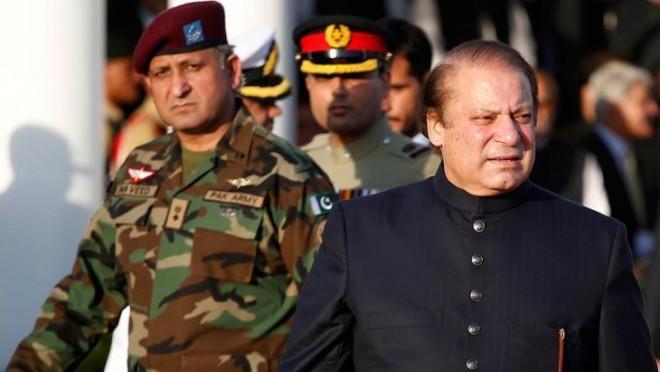
There is an increasing fear in certain sections in Pakistan that growing influence of the army in Karachi, especially its crackdown on Muttahida Qaumi Movement (MQM), is a carefully planned move orchestrated by ISI to lead the country into another coup.
Military officials, police officers and members of the MQM told Reuters that they fear that the increasing prowess of Pakistan's military, backed by ISI in Karachi, was a sign that the country was heading for a coup.
The history of the country has largely been shaped by military generals, who have interrupted and meddled with the civilian rule. The 2013 national election marked the first time in almost seven decades that Pakistan carried out a peaceful transfer of power between two civilian governments.
However, there are rumours of a change that many in the country have termed as a 'creeping coup.' A Pakistani government official, close to Lt General Rizwan Akhtar, chief of Inter-Services Intelligence (ISI) agency, which works as an extended arm of the Pakistan army, told Reuters that the military is swiftly gaining grounds in Karachi.
"There is a quiet, creeping takeover of Karachi by the military. Karachi is just too big ... too much land, too much business, resources. No one party will be allowed to rule Karachi from now on," the official, who declined to be named, told Reuters.
Since 2014, following the September violence, there were reports of how cricketer-turned-politician Imran Khan and Canada-based cleric Tahir-ul-Qadri were being encouraged by the military to campaign against the Nawaz Sharif government, with the help of pro-ISI television news channels.
The later developments only further cemented the fears after PM Sharif requested the army to intercede on his behalf, after agreeing to cede control of aspects of the country's security and foreign policy to the military.
The recent developments in Karachi has left many senior government officials worried, who claim that the civilian administration in region has been sidelined. And the head of the Rangers and the chief military commander for Sindh province have taken over as decision-makers, backed by the ISI chief Akhtar and the army chief.
But the most affected by the growing power of the Pakistani military in Karachi is MQM, which once used to have a stronghold in the metropolis. But since 2013, the party alleged that the military has been targeting it. Last month, the paramilitary Rangers raided the MQM's headquarters in Karachi, and seized arms and detained "criminals", including a fugitive convicted of murder.
"What is happening now (raids and arrests) is inconceivable to us," said MQM leader Haider Abbas Rizvi. "But they will not be able to dismantle the party, if that is the plan."
But then weakening MQM is not the only aim. Reuters Pakistan correspondent Mehreen Zahra-Malik noted that by "weakening the MQM's grip, and particularly that of exiled leader Altaf Hussain," the military wants to ensure free space for political parties such as Pakistan Tehreek-e-Insaf, led by former cricketer Imran Khan, which is seen as more sympathetic to the military.
The move over Karachi will not only give "the army leverage over Pakistan's economic hub," but will also "tighten its grip on national security, foreign policy and the judiciary through the introduction of military courts," Zahra-Malik observed.










